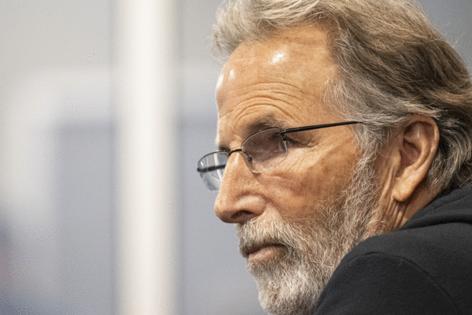Mike Sielski: The Flyers didn't fire John Tortorella. He fired himself. And his timing was right.
Published in Hockey
PHILADELPHIA — It was always going to end this way, with John Tortorella saying something incendiary that he couldn’t take back or breaking under the burden of coaching a bad team.
That is what the Flyers are right now, a bad team, and that is why they fired Tortorella on Thursday morning.
He had signed up to help guide them at least partially through a long and painful rebuild, and neither general manager Danny Brière nor team president Keith Jones had hidden his intentions. There would be no late-season trades in the name of qualifying for the last playoff berth in the Eastern Conference. There would be few moves, if any, that would benefit the Flyers in the short term.
After three years here, Tortorella apparently could no longer coach under those conditions. His comments Tuesday night in Toronto, following a 7-2 loss to the Maple Leafs, were nothing short of an act of self-immolation. The Flyers had just lost for the 11th time in their last 12 games. They hadn’t won a game in regulation in a month. And Tortorella left no doubt that he’d had enough.
“When you’re in this type of situation and you’re losing all the time and there’s nothing at the end of the tunnel for you, there’s certainly going to be some frustration,” he told reporters. “But this falls on me. I’m not really interested in learning how to coach in this type of season, where we’re at right now. But I have to do a better job. So this falls on me, getting the team prepared to play the proper way until we get to the end.”
Those italics were added for emphasis, because once Tortorella drew that line, there was no going back. Brière and Jones had no choice, really. Either they fired him now, or they waited another nine games and three weeks to do it once the season ended. One way or another, Tortorella couldn’t be here as coach anymore, for the simple reasons that he didn’t want to be and that his methods had passed their expiration date.
Yes, the Flyers were a below-average club from the start of this season, but at least they gave an honest accounting of themselves every night. They tried, and that ethos was supposed to be Tortorella’s greatest benefit to the franchise.
Love him, hate him, respect him, fear him: He was supposed to be R. Lee Ermey’s drill sergeant in Full Metal Jacket. He would set a standard. He would judge which players were meeting that standard. He would do a lot of the weeding out.
Over these last few weeks, though, after the departures of several veteran players who were among the true culture-setters in the locker room — Scott Laughton, Erik Johnson, Joel Farabee, Morgan Frost — the Flyers have no longer been just outmatched. The quality of their play has deteriorated badly.
They have gotten worse in every regard: terrible goaltending, no scoring, waning effort. That kind of regression would spell the end for just about any coach, but what damaged Tortorella’s standing most were the opposite performances of the Flyers’ two best and most important players: Travis Konecny and Matvei Michkov.
The organization’s leadership considers Konecny a cornerstone, a speedy forward who can score, kill penalties, play with toughness and edginess, be a team leader for a long time. Yet he recently went through a 23-game stretch in which he scored just one goal.
The slump clearly was preying on his mind, sapping his confidence, and if Tortorella couldn’t help him snap out of it, if the Flyers were seeing a version of Konecny so far from the one they were counting on, maybe Tortorella wasn’t the coach to bring the best out of him.
As for Michkov, Jones admitted in an interview Saturday that he disagreed, at least at first, with Tortorella’s decisions to bench Michkov several times this season. Jones was still thrilled with Michkov’s development, but it was clear he credited Michkov himself for that resilience, not Tortorella’s attempts at tough love.
It felt like Jones was acknowledging that Michkov was growing in spite of Tortorella, not necessarily because of him.
“I can’t tell you that everything [Tortorella] does, I get excited about immediately,” Jones said. “But for the most part, most things tend to be in a way that helps the player in the future. We’re in good standing, as far as that goes. But everything is being watched.”
With Tortorella, everything always is. From Tampa Bay to New York, from Vancouver to Columbus to finally in Philadelphia, he slides eggshells under everyone’s feet: players, media, executives.
Sometimes that approach succeeds. It did with the Lightning in 2004, with a talent-laden team that proved tough enough to win a Stanley Cup, and it did for a while with the Rangers, with a club that worked its way into becoming a contender. Always, though, the flame burns itself out, usually pretty fast. It did again here.
The Flyers were willing to tolerate his tempestuous personality — those complaints from within the locker room about a lack of communication, those press conferences where everyone is waiting for him to try to bully someone or to call out one or more of his own players — as long as they were heading in the right direction. As long as things were getting better. Things weren’t.
John Tortorella said it himself. He couldn’t learn to live with a rebuild. Now he doesn’t have to.
©2025 The Philadelphia Inquirer. Visit inquirer.com. Distributed by Tribune Content Agency, LLC.







Comments